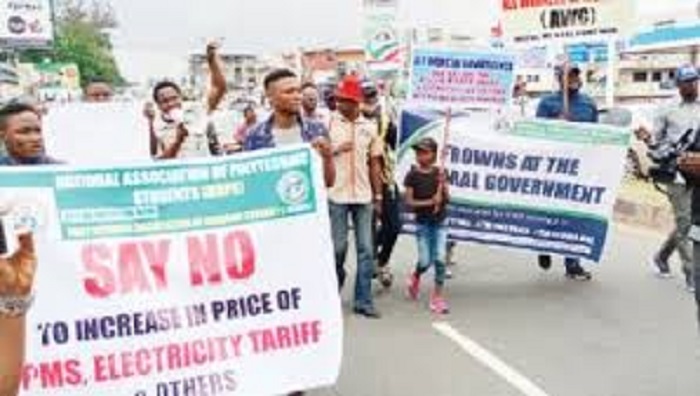Last week, Nigerians received September ‘gifts’ from the government. The Pipeline Price Monitoring Company (PPMC) a subsidiary of NNPC increased the price of petrol from N143 to N151 per litre.
In the same vein, the Nigeria Electricity Regulatory Commission (NERC) hiked electricity tariffs. Don’t ask me why the government took this bold but unpopular decision.
- Govt, labour meet today over electricity, fuel price hike
- FG to distribute 2000 buses to cushion effects of fuel price hike
Even before it finally settled for these actions, indications have continued to emerge that; the days of subsidy will be over. Why? The government says it cannot afford or continue to dole out handouts to Nigerians in the name of subsidy. It was reported that, the government has been spending billions if not trillions in subsidy which often ended in the pockets of few marketers.
Therefore, government feels that providing more subsidies to Nigerians will rob it of enough revenues to carry out infrastructural development. Amidst the COVID-19 pandemic which seriously affected the country’s economy, one cannot rule out these measures from government even if Nigerians will not welcome it.
Since the announcement of hike in price of petrol and electricity by the government, outrage, condemnations and mixed reactions have continued to trail the move. Many Nigerians viewed the development as wrong and untimely. For instance, since the outbreak of corona virus with its attendant or grave consequences, many Nigerians have lost their means of livelihood.
In the last five months, businesses have collapsed and many people have lost their jobs due to the pandemic. Besides, there is galloping inflation which made the cost of goods and services climb up beyond the reach of the common man. It is lamentable to say that when Nigerians are losing purchasing power as the result of inflation and hustle to eke out a living, the news of hike in price came knocking.
With the hike in price, Nigerians will pay more for erratic power supply and petroleum. You will agree with me that the hike in price will have negative multiplier effects on the economy.
Other sectors such as transportation, manufacturing and small scale business which depend on petroleum and electricity may be forced to increase the prices of their services.
Sadly, the pauperized downtrodden masses would bear the brunt. With the bitter price pill forced into the mouth of Nigerians, one is at lost to conclude if there is any hope in sight for the country? There is nothing wrong for government to stop the petroleum subsidy. Even though, the advanced countries of the world still pay subsidy for goods and services.
In the case of Nigeria, it was alleged that, the petroleum subsidy has been fraught with corruption and irregularities. It is also believed that deregulation is the only way to unbundle the petroleum sector to guarantees efficiency and attract foreign investors.
This of course is truth. The poser remains: why is the government punishing Nigerians for the sins of the few. In the US and other developed countries where subsidy is a matter of life and death, nobody hears shoddy deal because the system has been structured to help the many, not the few.
This is not the case in Nigeria .The question on the lips of Nigerians is: has the government has prepared palliative measure to cushion the likely effects of the new price regime or not?
However, it is not debatable to say, Nigerians will experience rise in the cost of living in the coming years. The hike in price has come at a wrong time when international and national agencies like world poverty clock and Nigeria Bureau of Statistics have continued to reel out shocking figures of poverty in the country.
It is estimated that, more than 86 millions Nigerians are living below the poverty line or one dollar per-day. With the removal of subsidy coupled with high inflation in the country, the poverty rate may leap frog to alarming rate.
In 2012, when the Jonathan’s administration attempted to remove the subsidy, the present leaders then in opposition resisted and protested. Today, those who promised to fix our moribund and comatose refineries within its first year in power have failed to fulfill the promise. The three country’s refineries are not fully operational and have continued to incur losses to the tune of billions year in year out.
Ibrahim Mustapha Pambegua writes from Kaduna

 Join Daily Trust WhatsApp Community For Quick Access To News and Happenings Around You.
Join Daily Trust WhatsApp Community For Quick Access To News and Happenings Around You.


